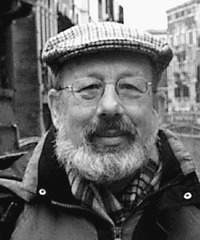 |
|
Mathematics of Alexander Shnirelman: from quantum chaos to hydrodynamics
February 26–27, 2021
|
|
Conference in honour of Alexander Shnirelman's
75th birthday
Friday, February 26, 10:00 EST (16h00 Paris, 18:00 Moscow)
Yann Brenier (CNRS, École Normale Supérieure):
Various formulations and approximations of incompressible
fluid motion in porous media
(video)
-
The Muskat model, which describes the filtration of an incompressible
imhomogeneous fluid in a porous medium,
has played a crucial role in both optimal transport
and convex integration theories through the respective works of Felix Otto
and Lászlo Székelyhidi. The fast development of
microstructures in the unstable regime where the heavy component
of the fluid is above the light one is a challenge at both computational
and analytic levels.
I will first explain how a very simple and computationally effective time
discrete version of the Muskat model can be designed in terms of polar
factorization of maps. Then I will discuss various possible formulations
(multiphasic, dissipative...) of this model. In particular I will explain
the local well-posedness of the multiphasic version in contrast to what
happens for the Euler equations with a similar formulation.
-
Friday, February 26, 11:00 EST (17h00 Paris, 19:00 Moscow)
Camillo De Lellis (IAS):
Locally dissipative solutions of the Euler equations
(video)
-
The Onsager conjecture, recently solved by Phil Isett, states that, below a certain threshold regularity, Hölder continuous solutions of the Euler equations might dissipate the kinetic energy. The original work of Onsager was motivated by the phenomenon of anomalous dissipation and a rigorous mathematical justification of the latter should show that the energy dissipation in the Navier–Stokes equations is, in a suitable statistical sense, independent of the viscosity. In particular it makes much more sense to look for solutions of the Euler equations which, besides dissipating the total kinetic energy, satisfy as well a suitable form of local energy inequality. Such solutions were first shown to exist by Lászlo Székelyhidi Jr. and myself. In this talk I will review the methods used so far to approach their existence and the most recent results by Isett and by Hyunju Kwon and myself.
-
Saturday, February 27, 10:00 EST (16h00 Paris, 18:00 Moscow)
Peter Sarnak (Princeton and IAS):
Ergodic properties of eigenfunctions
(video)
-
We review some of the developments concerning eigenfunctions of the Laplacian
on compact Riemannian manifolds whose geodesic motion is chaotic; starting with Shnirelman's
influential paper with the above title.
-
Saturday, February 27, 11:00 EST (17h00 Paris, 19:00 Moscow)
Semyon Dyatlov (MIT):
Control of eigenfunctions on negatively curved surfaces
-
Given an L2-normalized eigenfunction with eigenvalue
λ2 on a compact Riemannian manifold (M,g) and a nonempty open set
subset Ω of M, what lower bound can we prove on the L2-mass of the
eigenfunction on Ω? The unique continuation principle gives a bound
for any Ω which is exponentially small as λ goes to infinity.
On the other hand, microlocal analysis gives a λ-independent
lower bound if Ω is large enough, i.e. it satisfies the geometric
control condition.
This talk presents a λ-independent lower bound for any set
Ω in the case when M is a negatively curved surface, or more
generally a surface with Anosov geodesic flow. The proof uses microlocal
analysis, the chaotic behavior of the geodesic flow, and a new ingredient
from harmonic analysis called the Fractal Uncertainty Principle.
Applications include control for Schrödinger equation and exponential
decay of damped waves.
Joint work with Jean Bourgain, Long Jin, and Stéphane Nonnenmacher.
-
Saturday, February 27, 12:15 EST (18h15 Paris, 20:15 Moscow)
Alexander Shnirelman (Concordia):
Some comments and reflections
-
- A few words of introduction.
- Mysteries and paradoxes of multiphase flows in porous media. Does there exist a turbulence in the oil reservoir?
- Alternative constructions of dissipative weak solutions of the Euler equations.
- Eigenfunctions of Laplacian on the hyperbolic surfaces. From scars to random matrices.
-
Saturday, February 27, 13:30 EST (19h30 Paris, 21:30 Moscow)
*** Zoom-Banquet (bring your own bottles!) ***
Organized by
CRM (Montreal),
McGill University,
Texas A&M University,
Université de Montreal,
University of Toronto
Organizers:
Andrew Comech,
Dmitry Jakobson,
Boris Khesin,
Iosif Polterovich
The conference will take place over Zoom. For Zoom information, please contact one of the organizers.
The background of this page is a plot from A. Shnirelman's article
arXiv:1605.08271

